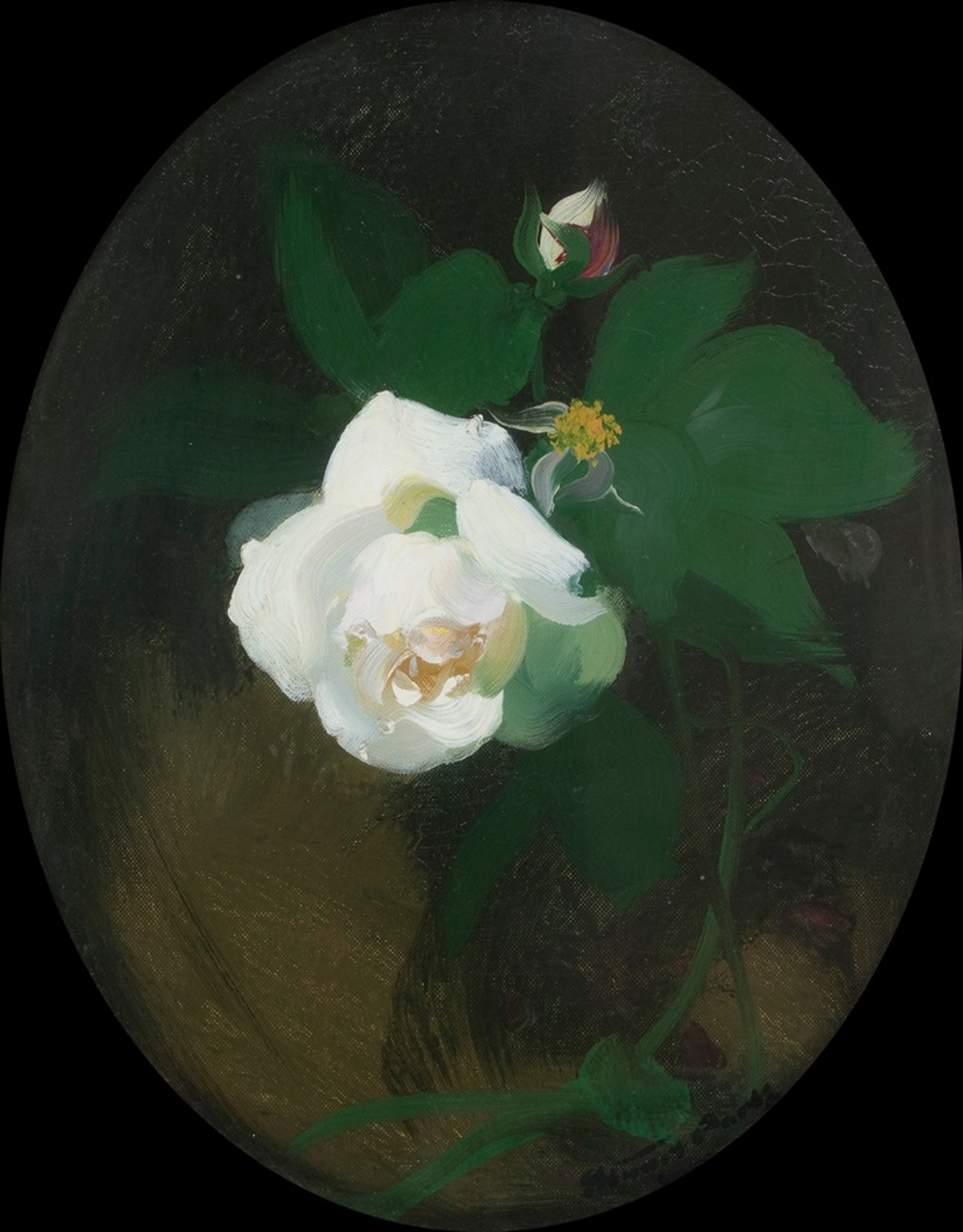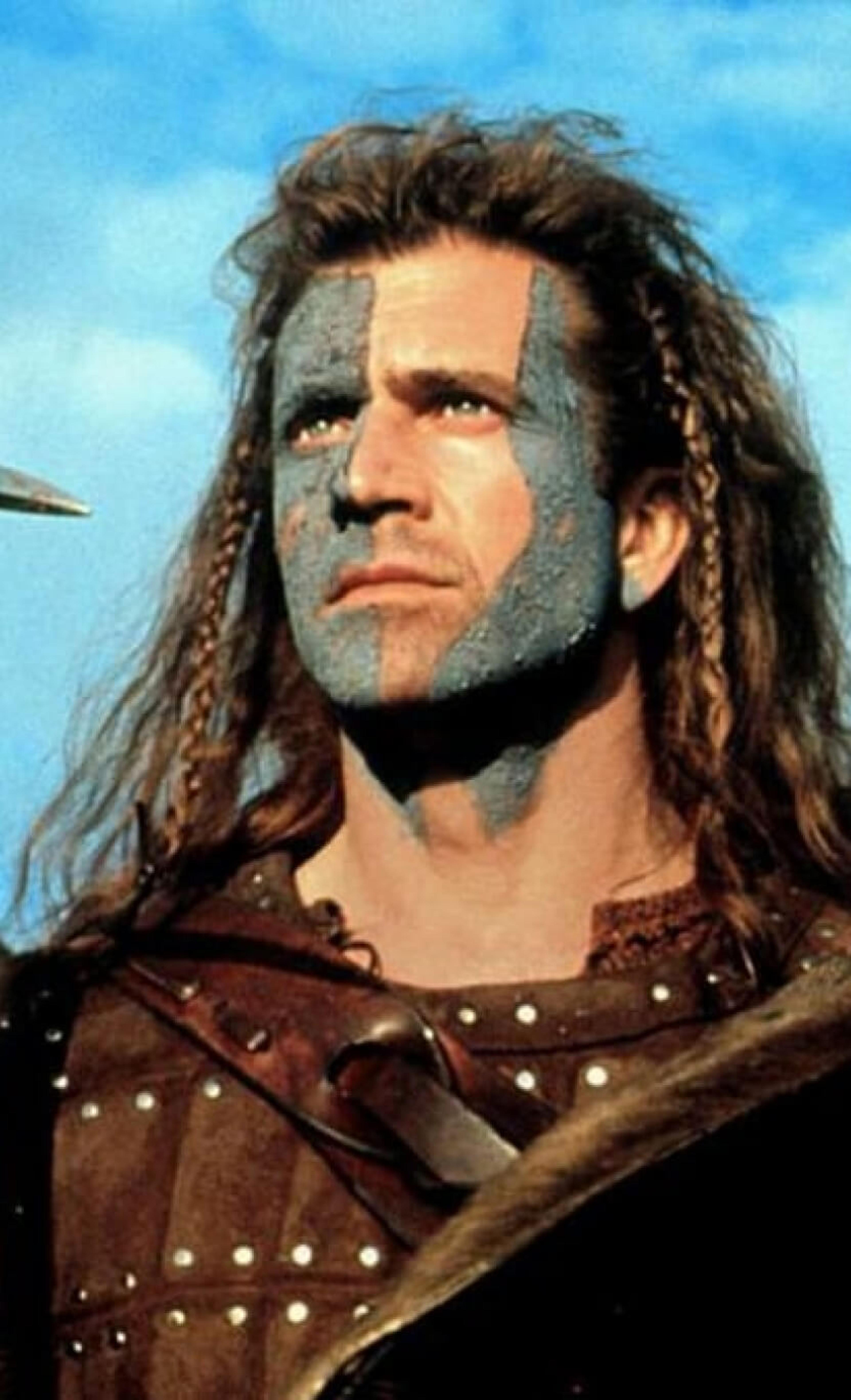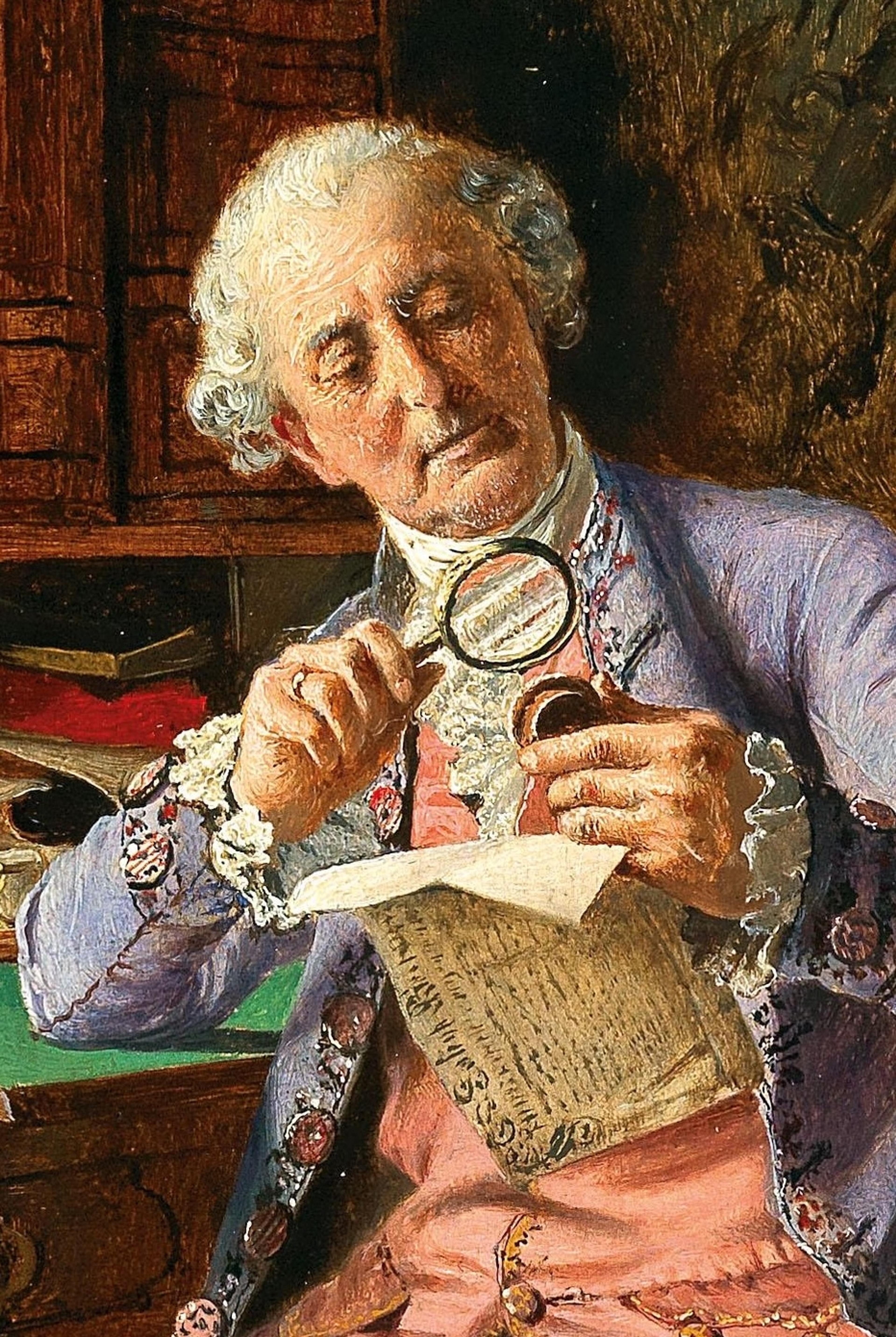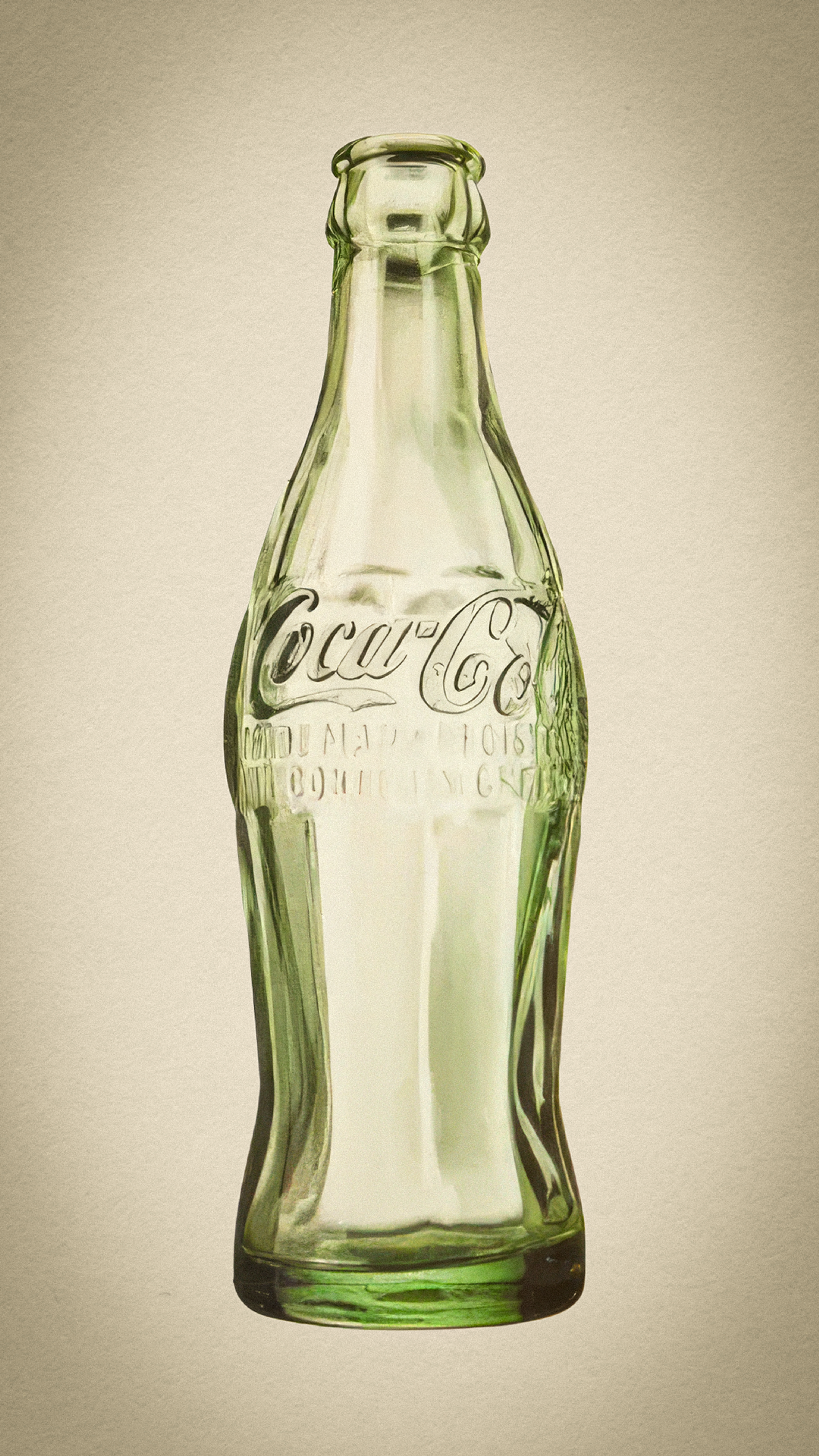HOW TO
Describe anEra
By
Sherry Ning
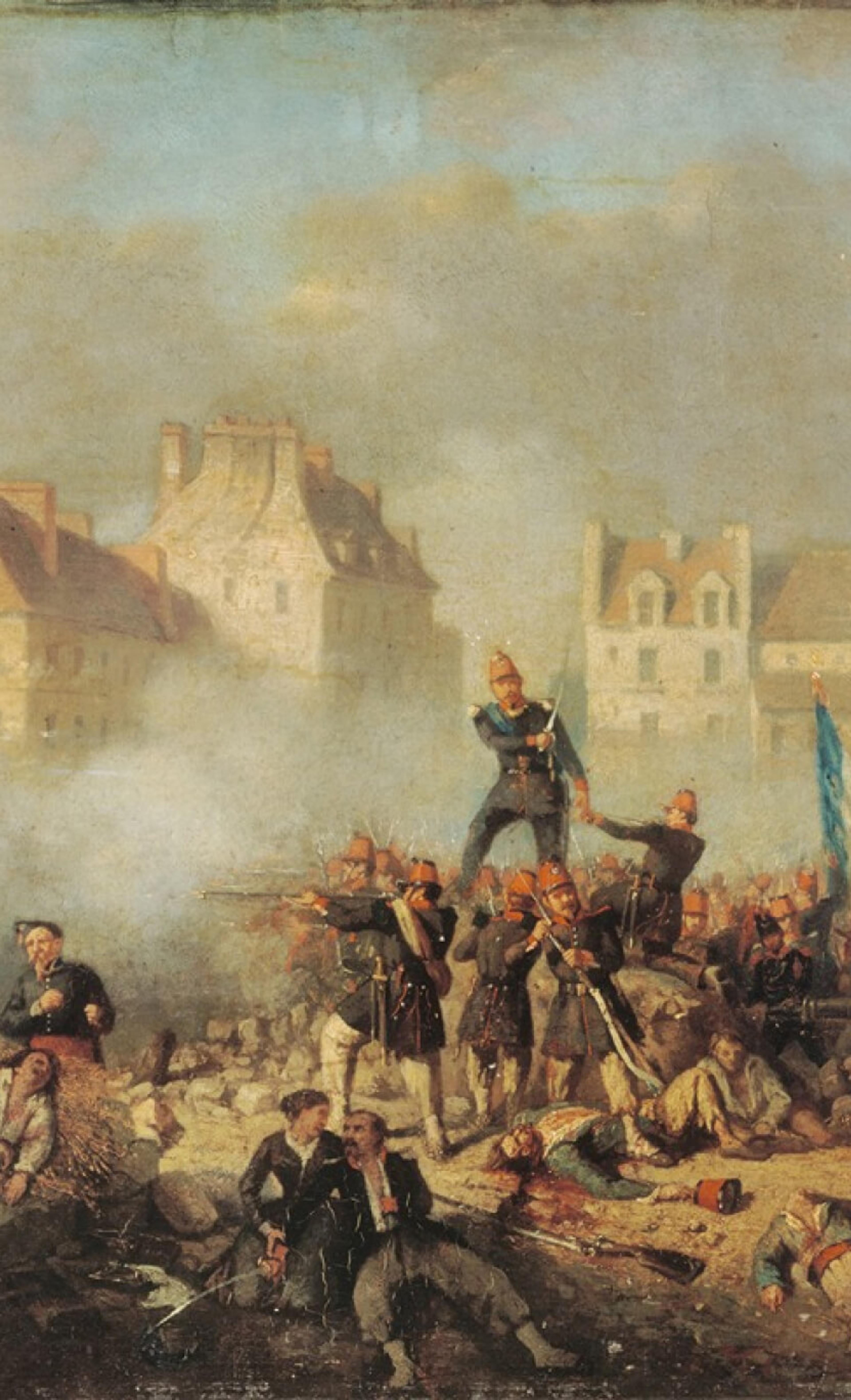
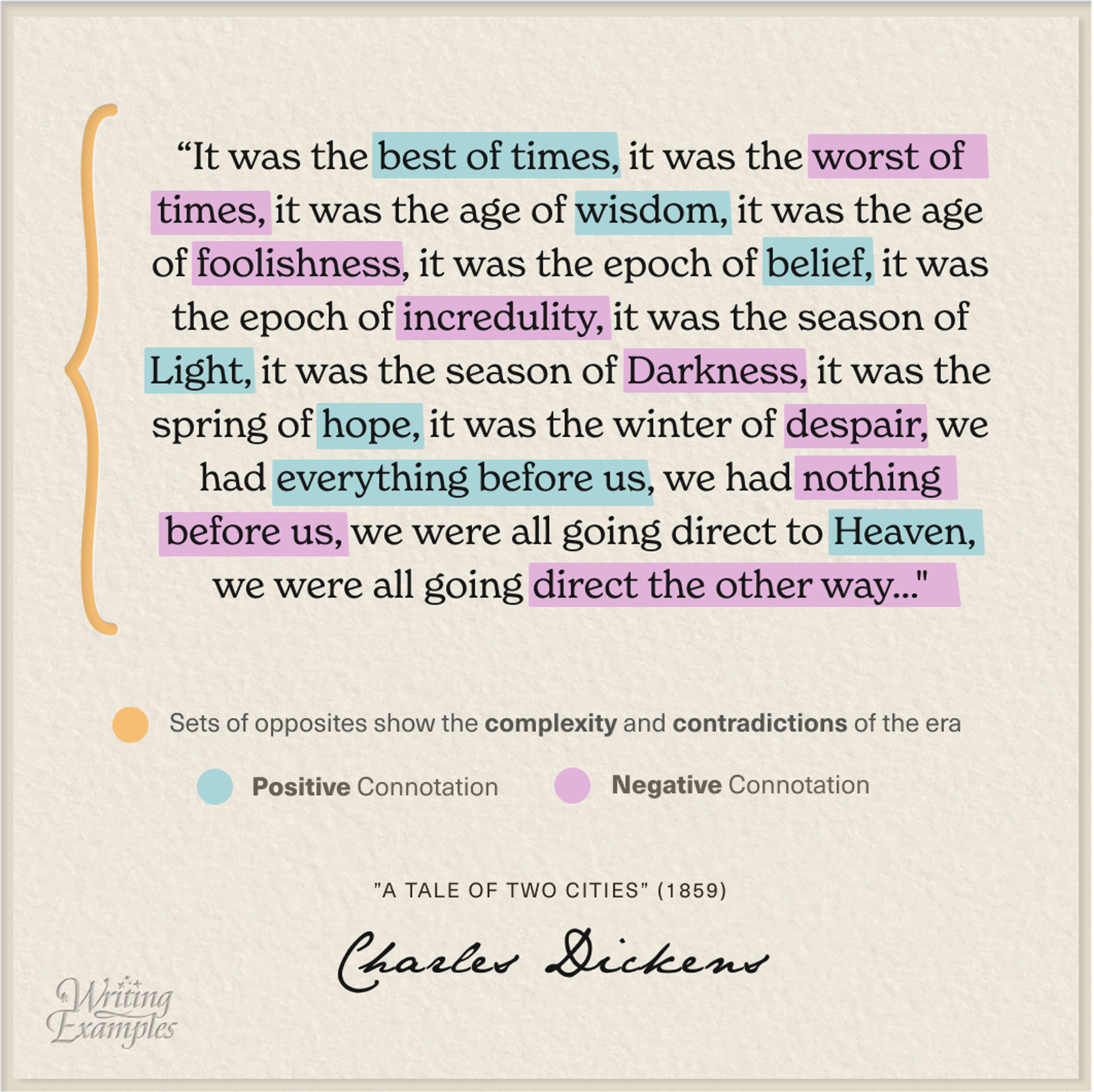
t was tumultuous, chaotic, paradoxical. People had extreme political beliefs and hostile views of those in a different social class. The French Revolution was bloody and lawless — yet, Dickens uses none of these adjectives to describe the arcarchy of the era.
By using sets of opposites, Dickens portrays the brokenness that defines the Revolution.
- It was the best of times, it was the worst of times: The prosperous were few and their lifestyles looked nothing like the poor. There were gemstone-studded royals and there were the famished peasants yelling in bread riots.
- "It was the age of wisdom, it was the age of foolishness: This era was also defined by extreme differences in beliefs. The Enlightenment bore philosophies of liberty and equality, but there were radicals who rampaged through the cities to fight for their rights.
People say that the road to hell is paved with good intentions — and that was true for the French Revolution. Dickens says: “we were all going direct to Heaven, we were all going direct the other way."
Like Dickens, you can show the complexity of an era by highlighting the contradictions within it. Doing so will help your reader understand the complexity of the scene viscerally, rather than conceptually. No need to complicate things. All you need is a list of opposites. Here, we have: best vs. worst, wisdom vs. foolishness, belief vs. incredulity, light vs. darkness, hope vs. despair, everything vs. nothing, heaven and hell.
The French Revolution wasn’t simply one thing or another. It was contradictory. You have to feel it to comprehend it.
Read More
Write like the Greats
New Writing Examples, right in your inbox.
“Beautiful, playful, and high-quality. Kudos.”
Clayton
from Missouri, USA
